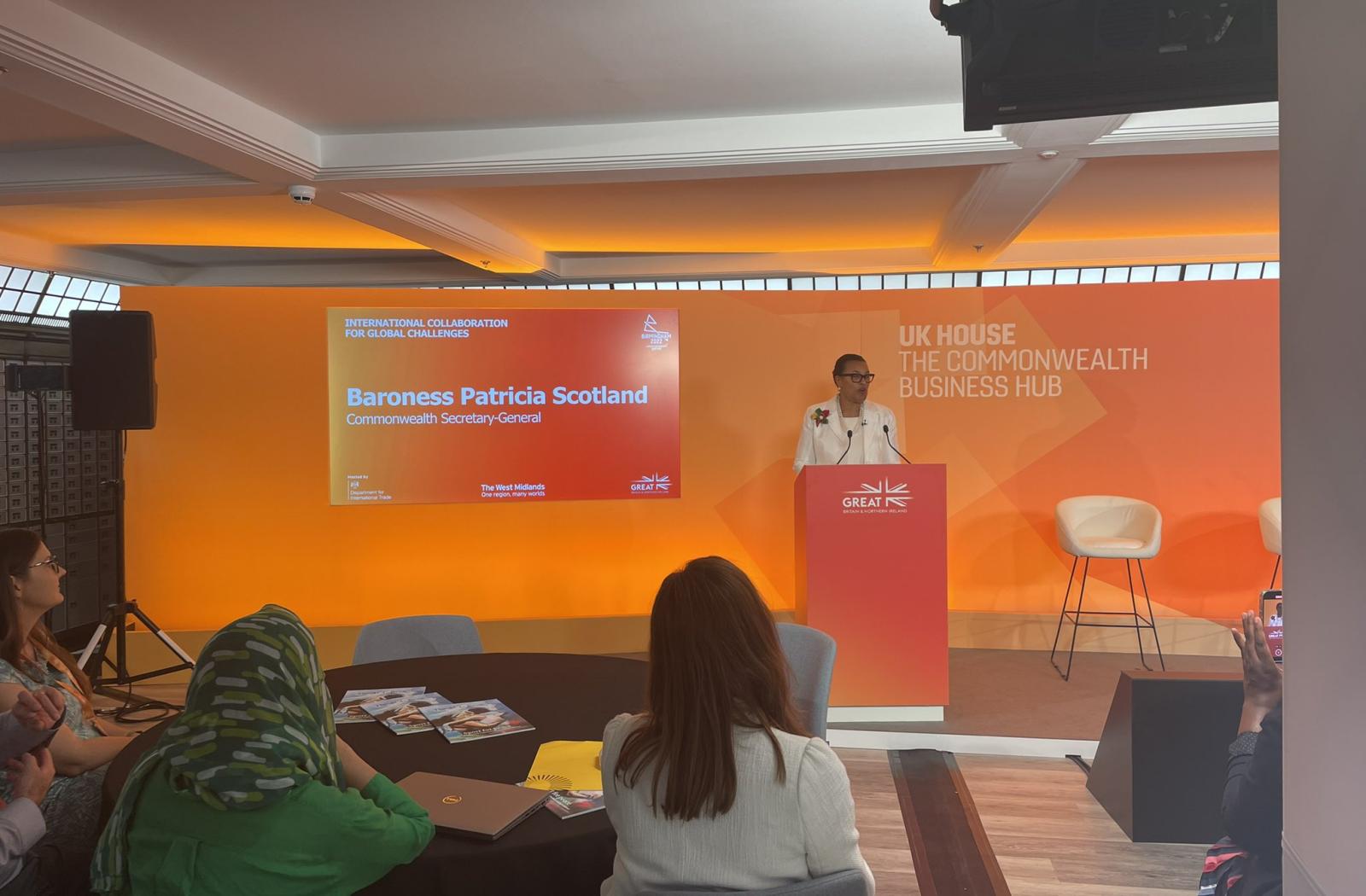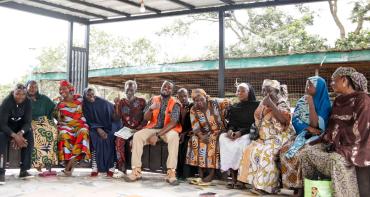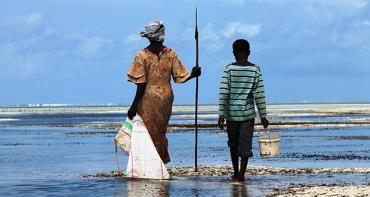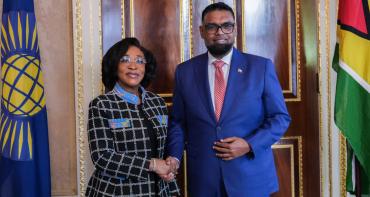The Commonwealth Secretary-General has called for a holistic and multi-disciplinary approach to tackle the increasing threat of food insecurity across the world, which has been exacerbated by the COVID-19 pandemic, conflict, the climate crisis, and political, social and economic inequalities.

Speaking at an event held in the margins of the Birmingham 2022 Commonwealth Games on 29 July 2022, the Secretary-General committed to making food security a primary focus, urging the international community to step forward with practical and financial support for countries facing famine and people facing starvation.
The UK House panel discussion saw Commonwealth leaders, policymakers, and academics discuss how university-led partnerships are key to translating research and expertise into action on the pressing global challenge of food security, biodiversity loss and climate action.
In her keynote address, the Commonwealth Secretary-General, The Rt Hon Patricia Scotland QC, highlighted the critical need for international experts, academics, and policymakers to work together, across sectors and disciplines, to develop practical solutions to issues such as climate change and food security, and support sustainable growth across the Commonwealth.
“Our Commonwealth is at its best when we work together. The focus of today’s gathering – food security – could not be more important, timely, and demanding of that collaboration.
“Food security is both a serious long-term challenge and an acute crisis.
“In the short term, we need the international community to step forward with practical and financial support for countries facing famine and people facing starvation. I will be working closely and urgently with our member countries, and our multilateral partners, to ensure the Commonwealth plays its full part in the weeks and months ahead.
“But long term, it is clear we need a different – more holistic – approach to food security. For the Commonwealth, this holistic approach comes together in our Living Lands Charter: ratified by Heads of Government at CHOGM.”
“We need your acuity, your imagination, your commitment, and your willingness to work together more than ever.
“There is no time to waste.”
The event comes at a time when the World Food Programme (WFP) described 2022 as the ‘year of unprecedented hunger’ where as many as 828 million people go to bed hungry every night and the number of those facing acute food insecurity has soared - from 135 million to 345 million - since 2019. A total of 50 million people in 45 countries are teetering on the edge of famine.
The WFP also describes a “ring of fire” stretching around the world where conflict and climate shocks are driving millions of people to the brink of starvation. The Secretary-General noted that many Commonwealth countries form part of this ring of fire and continue to bear the brunt of the impacts of climate change, which poses an existential threat, especially to small and vulnerable states.
Commonwealth solutions through the Living Lands Charter
The Secretary-General’s rallying call comes just over a month since Commonwealth leaders adopted the Living Lands Charter: A Commonwealth Call to action on Living Lands (CALL), which commits all 56 member countries to safeguarding global land resources while taking coordinated action on climate change, biodiversity loss, and sustainable land management.
Replicating the successes of the Commonwealth Blue Charter, the Living Lands Charter recognises that the vulnerabilities of our ecosystems to land degradation, biodiversity loss and climate change are closely interrelated and need to be considered collectively.
Heads recognised the need of taking a principled approach to the Living Lands Charter and active cooperation with a range of partners to share knowledge, expertise, success stories, and good practices in sustainable land management, while incentivising investment flows and technological innovation.
The Commonwealth Secretariat will be working, together with the relevant UN agencies linked to the three Rio Conventions, including the United Nations Convention on Biological Diversity (UNCBD); the United Nations Convention to Combat Desertification (UNCCD), and the United Nations Framework Convention on Climate Change (UNFCCC), to ensure that member countries deliver on this commitment.
All Commonwealth member countries have agreed to voluntarily dedicate a ‘Living Land’ in their territory to future generations, in line with the Strategy set for the UN Decade on Ecosystem Restoration.
“I believe the Living Lands Charter can be a game changer,” the Secretary-General said, adding that “For the Living Lands agenda to truly thrive, we need you: to crunch the data; to generate new ideas; to work with us; to support us; to challenge us; to enrich us with your knowledge. And, in doing so, to make the world safer.”
The Secretary-General also applauded the Association of Commonwealth Universities (ACU) programmes like LEAP 4 Food and Nutrition Security and Sustainable Agriculture (LEAP 4 FNSSA) and welcomed their proposal for a Living Lands Charter Fellowship scheme which will strengthen the conduits between policymakers and experts.
The Secretary-General’s speech set the tone for the rest of the speakers who urged for more cross-sector collaboration and greater investment in innovation and research to deliver sustainable food solutions.
Professor Frans Swanepoel from the University of Pretoria highlighted the work of LEAP 4 FNSSA and said closer partnerships and stronger advocacy for developing partners are critically important to address the current food crisis.
Urooj Ashraf, a Pakistani first-year PhD scholar at the University of Cardiff said highlighted challenges in food security in Pakistan and how governments and policymakers must do more to harness the power and expertise of higher education to solve the food crisis.
Other panellists were Dr Joanna Newman, Chief Executive and Secretary General of the Association of Commonwealth Universities; Abhik Sen, Head of Innovation and Partnerships at the Commonwealth Secretariat; and Sarah Chidgey, Head of International Education at the UK’s Department for International Trade.
The event, which was organised by the UK Government in collaboration with the Association of Commonwealth Universities, was held under the theme, International Collaboration for Global Challenges - Translating University Expertise Into Action.
Watch the video recording of the event (Note: Registration Required)
Read the Secretary-General’s speech
Media contact
- Angela Kolongo Communications Officer, Communications Division, Commonwealth Secretariat
- T: +44 7587 881503 | E-mail



